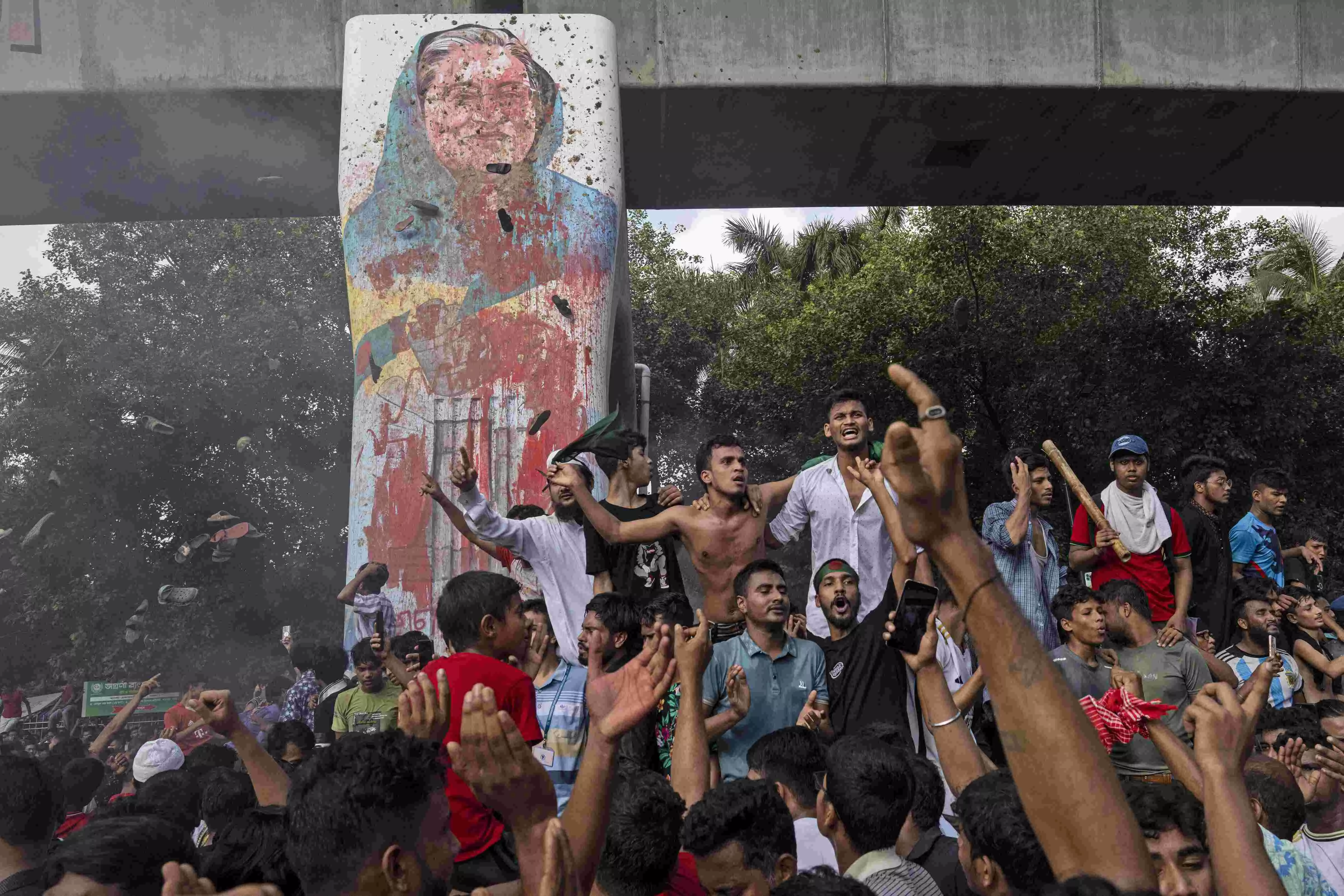Sailing through turbulence

A sense of political uncertainty has materialised in Bangladesh, as Awami League leader Sheikh Hasina tendered resignation from the PM’s post, and fled the country. Following her resignation, Bangladesh Army Chief, Waker-Uz-Zaman—known to be a distant relative of Sheikh Hasina, who was promoted to the post in June—has announced the formation of an interim government with the support of political parties, taking “full responsibility” of governance. On a priority basis, Zaman has asserted that “it is time to end the violence” as the country “has suffered a lot, the economy has been hit, many people have been killed.” The Army Chief has assured that “all the injustices will be addressed.” Everything said and done, Bangladesh’s polity stands at an uncertain juncture, and the approach of the Army towards interim government formation will be critical to observe.
From rising unemployment and corruption to climate change, people in Bangladesh have already been battered by a series of crises—the political uncertainty will only add to their woes. The Hasina government’s despotic handling of the quota protests—an extension of her rule bordering on authoritarianism—is perhaps the biggest factor behind the culmination of the present scenario. She had come under consistent criticism from opposition parties and political critics for her undemocratic manner of governance. Although conducted under the guise of a democratic framework, the past General Elections in the country were virtually contested without significant opposition—a tell-tale sign of gasping democracy.
No wonder then that the “non-cooperation” movement initiated by the students had a one-point agenda—Sheikh Hasina’s resignation. Despite curbs and Internet shutdown, they have managed to have their demand heard. What follows heron will be the greater challenge—the challenge of forming a representative, democratic government that will have the finesse to take Bangladesh out of the myriad problems it is currently embroiled in.
India being an immediate neighbour is also likely to face implications from the developments in Bangladesh. Indo-Bangladesh relations can never be merely seen through the fragmented lenses of trade, economy, ideology, and geopolitics. The countries, despite certain sticking points, have been held together by exemplary people-to-people and culture-to-culture ties. It won’t at all be an exaggeration to say that Bangladesh is the most cordially connected neighbour of India. The Indian state of West Bengal shares common threads of language and culture with Bangladesh. Right from the quota protests to the resignation of Sheikh Hasina—every pulse of sentiment in Bangladesh has echoed in West Bengal. Chief Minister Mamata Banerjee has appealed to the people of the state to maintain peace and avoid provocation.
Reassuringly, India’s External Affairs Minister immediately met with Prime Minister Modi to take stock of the situation. India has the dual task of securing its interests and standing firm with its neighbour in this time of distress—as it has always done. Right from its birth following the 1971 Liberation War to the present day, Bangladesh has always found India by its side. India, in fact, has a proven track record of effectively cooperating with its neighbours in times of crisis to maintain peace and stability in the region. The latest example was India’s multi-front support to the Sri Lankan political-economic crisis.
As an emergency response, multiple links between India and Bangladesh—from trade to transportation—have come to a standstill. As the turbulence calms down in the coming days, India, after taking stock of its own internal situation, should engage with Bangladesh to ensure that the travails of Bangladeshi people come to an end immediately. Political-economic stability of Bangladesh is a quintessential component of broader peace in the region. For now, one can just be hopeful that the people of Bangladesh, under the handholding of the Army, will soon elect a democratic government for themselves in the future, which will sail them through these tough times.



